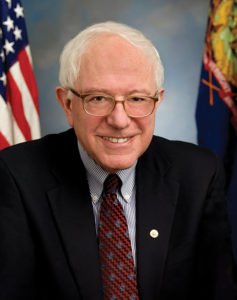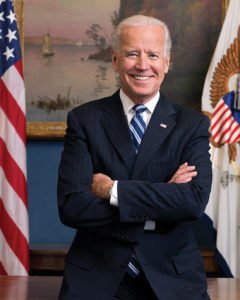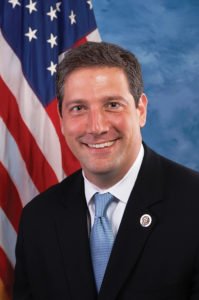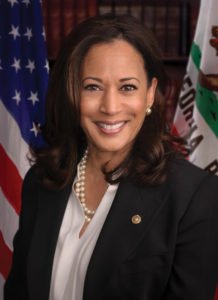The battle over healthcare is dividing Democrats and could stymie their bid to defeat President Trump in the 2020 presidential race, writes Bette Browne
The battle for affordable US healthcare insurance has become a flashpoint in the 2020 presidential election, with Democratic candidates openly fighting among themselves about the issue in a bitter battle that could imperil their chances of winning back the White House.
Ironically, exactly a decade ago, it was a Democratic President, Barack Obama, who pioneered a landmark overhaul of health insurance with passage of the Affordable Care Act, known as Obamacare, which made insurance affordable to millions more Americans and ensured coverage for pre-existing conditions.
But when Obama’s successor, Republican Donald Trump, came to power in 2016, he pledged to repeal the law. While his efforts failed in Congress and in a number of court battles, he did succeed in weakening the reach and implementation of Obamacare by cutting funding and defeating efforts to expand the law.
Now, however, it is Democrats who are in the thick of the fray, with some pushing to expand Obamacare, while others are promoting more ambitious plans that would transition America to universal healthcare coverage in the shape of ‘Medicare for All’. This would extend the government’s decades-old and very popular Medicare insurance programme for the elderly to cover Americans of all ages.
Universal coverage
Under Medicare for All, authored by Senator Bernie Sanders and backed by like-minded progressive candidates, especially Senator Elizabeth Warren, there would be no private insurance plans or other government health plans and, instead, the country would have a single, nationally-run health insurance programme for everyone.

This would do away with co-payments, which are crippling many Americans on private insurance, and would introduce a new tax for both employers and households, as well as raising some existing taxes on the very wealthy to help fund the plan. It would also redirect all current federal funds spent on Obamacare insurance premiums and other federal healthcare programmes to the new programme.
On the face of it, this doesn’t seem that radical an idea. But since it would involve more taxes and would give the government the primary role in the plan, it has sparked major divisions among Democrats, who fear it might be perceived as too radical and could cost them the election.
Polls generally find such fears are well founded. While surveys show there is majority support for some version of universal healthcare coverage, support drops dramatically when voters are told that they would likely have to pay more in taxes. Apart from Sanders and Warren, most of the other Democratic presidential contenders support expanding Medicare and other incremental moves towards a single-payer system, but would also allow people to keep their private insurance plans.
Former Vice President Joe Biden, the current Democratic front-runner for the party’s nomination, has made it clear that he does not support Medicare for All without a private insurance option. Other candidates’ plans tend towards Biden’s view.

Biden says the Sanders Medicare for All plan would cost the government tens of trillions of dollars, whereas his plan would cost about $750 billion over 10 years and the cost would be offset by increasing taxes on high earners only. He asserted his plan would “allow Americans to keep their employer insurance if they want to” and would “protect and build on Obamacare”.
Meanwhile, Trump and his Republican party have branded Medicare for All, in practically any form, as proof that the Democratic party wants to bring “socialism” to America and kill the option of private health insurance. The President once put it this way: “They want to raid Medicare to pay for socialism.”
Democrats divided
The battle over healthcare is thus bound-up in an internal dispute among Democrats about the best way to prevail over Trump. While they are united in their desire to defeat the Republican President, progressives and moderates are deeply divided on how best this can be achieved.
They are torn over whether to back a moderate candidate like Biden, who would probably appeal more to centrists and white working-class voters, or whether to embrace a progressive agenda that would dramatically restructure government and its spending priorities in areas like health insurance and free public college tuition.
Their divisions on how to proceed with more affordable healthcare have been centre-stage in a number of election debates. One of the candidates, Congressman Tim Ryan of Ohio, called Medicare for All “bad policy” and “bad politics”, while Montana Governor Steve Bullock said Medicare for All would “rip away quality health from individuals.” He charged that “… it used to be Republicans that wanted to repeal and replace (Obamacare); now many Democrats do as well”.
Another heated exchange unfolded between Ryan and Sanders, who lost the Democratic nomination in 2016 to Hillary Clinton. Sanders was questioned about the estimated 600,000 union members in Michigan who would have to give up their private health insurance plans if Medicare for All was enacted. “Can you guarantee those union members that the benefits under Medicare for All will be as good as the benefits that their union reps fought hard to negotiate?” the CNN moderator asked Sanders.

“They will be better, because Medicare for All is comprehensive and covers all healthcare needs for senior citizens. It will finally include dental care, hearing aids and eyeglasses,” Sanders said. “You don’t know that, Bernie,” Ryan interrupted. “I do know!” Sanders retorted, “I wrote the damn bill.”
But Ryan persisted. “Senator Sanders does not know the union contracts in the United States,” Ryan said. “I’m trying to explain that these union members are losing their jobs. Their wages have been stagnant. The world is crumbling around (them). The only thing they have is possibly really good healthcare, and the Democratic message is going to be — ‘we’re going to go in, and the only thing you have left, we’re going to take and do better’. I do not think that’s a recipe for success for us. It’s bad policy and it’s certainly bad politics.”
Ryan’s point is a strong one, as I discovered when speaking with some friends from Iowa, who recently visited Ireland. “We want to keep our health plan the unions negotiated. It’s a very good plan,” I was told. “Most of the Democrats wouldn’t allow us to do that.”
Apart from Biden, who is leading the field among the top 10 candidates, those whose numbers are increasing in recent polls are passionate supporters of Medicare for All. Prominent among them is Senator Warren. “I get it. There is a lot at stake, and people are scared,” Warren said in one debate. “But we can’t choose a candidate we don’t believe in just because we’re too scared to do anything else. And we can’t ask other people to vote for a candidate we don’t believe in. Democrats win when we figure out what is right and we get out there and fight for it. I am not afraid, and for Democrats to win, you can’t be afraid either.”
Meanwhile, candidates who do not support Medicare for All, such as former congressmen Beto O’Rourke and John Delaney, emphasised their plans would not result in middle-class tax increases. Another candidate, Senator Kamala Harris, who had backed Sanders’s Medicare for All Act in 2017, has now begun to express doubts about Sanders’ plan.
In the lead-up to the debates, Senator Harris unveiled a plan that would provide universal coverage but keep a role for insurance companies, and said she would not raise taxes on people making less than $100,000 to pay for it. But other candidates, such as Biden, disputed that Harris’s plan wouldn’t require tax increases for the middle class. It is also interesting to note that at this stage, the three leading candidates in the Democratic nomination race are Biden, Sanders and Warren.

The Medicare for All Act of 2017 authored by Sanders and introduced by him on 13 September, 2017, failed to pass in the Republican-controlled Senate. He re-introduced it again earlier this year but it remains stalled. The biggest difference between his 2019 plan and the version he introduced in 2017 is the addition of a long-term care benefit that would cover care for Americans with disability at home or in community settings.
Sanders has said he thinks Medicare for All will cost between $30 trillion and $40 trillion over 10 years, but that it would be less expensive overall than the current healthcare system. In defending his healthcare proposal in a number of debates, he has twinned it with free public college tuition as a way of energising voters and getting out the vote.
“To win this election and to defeat Donald Trump — which, by the way, in my view is not going to be easy — we need to have a campaign of energy and excitement and of vision. We need to bring millions of young people into the political process in a way that we have never seen by, among other things, making public colleges and universities tuition-free and cancelling student debt.”
Then, in comments on 25 August, Sanders hit out at criticism from some of his rivals that he has begun to backtrack on his Medicare plan by tweaking its impact on union workers. Earlier in the month, he unveiled measures that would in part include benefits for union workers who would be giving up their private insurance. That, however, did not change his plan, he said.
When asked why non-union workers would not receive a benefit for giving up their private insurance, he said: “Union workers gave up wage benefits over the years in order to pay for healthcare and non-union workers did not.”
But, in addition to voters’ fears of losing their current health plans, the idea that they would have to pay higher taxes to pay for Medicare for All is seen as a potentially explosive idea, since Americans generally do not see any payback for the pain of higher taxes. Paying higher taxes for better services, even for something as essential as better health cover, has always been a tough sell for Democrats in US elections.
Feasibility
Indeed, a good portion of the Democratic party itself remains unconvinced that Medicare for All is politically feasible. They say that while the issue may help Democrats win in their own party primaries, it will hurt them in the general election.
Moderate candidates are painfully aware of the powerful political and financial forces aligned with insurance company lobbyists against any changes that would give the government a bigger role and they emphasise how tough it was for Obama to ensure passage of his Affordable Care Act. What Democrats need to do, these moderate candidates argue, is improve the hard-won Obamacare plan in incremental steps.
Public opinion and lobby groups
It will prove a hard sell at election time for Democrats to convince Americans that having a national health system does not mean abolishing or outlawing private health insurance and that, instead, it would mean most people would end up paying far less for a good national system than they now pay for inferior private insurance and expensive co-payments.
One Reuters/Ipsos poll, for example, found that 85 per cent of Democrats, 52 per cent of Republicans and 70 per cent of Americans overall are in favour of Medicare for All. But when the policy involves a public option with the ability to keep a private plan, support jumps to 75 per cent overall.
Meanwhile, health lobby groups are also a major factor in the unfolding debate. The healthcare sector, which includes drug-makers, health insurers, doctors and hospitals, has contributed more than $5 million so far towards the many presidential candidates, according to data from the Centre for Responsive Politics. President Trump’s re-election campaign was a top recipient of healthcare dollars, and Sanders’s campaign ranked in the top five.
The head of the health insurance lobby, Mr Matt Eyles, the CEO of America’s Health Insurance Plans (AHIP), said his group is fighting back against Medicare for All because it believes the proposal threatens the survival of the private health insurers that it represents.
In August, Sanders wrote a letter to Eyles, as well as Steve Ubl, the CEO of the Pharmaceutical Research and Manufacturers of America, asking how much the groups would spend opposing Medicare for All. He also suggested a better use of the money would be to “make sure that no-one in the wealthiest country in the world dies or goes bankrupt because they cannot afford to purchase life-saving prescription drugs or go to a doctor”.
Senate races
The issue has also become a heated topic in a number of Senate races, which will coincide with the 2020 presidential vote. In Colorado, for example, a crowded field of Democrats is battling it out for the party’s nomination in that state to take on Republican Senator Cory Gardner.
His potential challengers are hitting Gardner on his record of voting to repeal Obamacare and for not speaking out against another administration-backed lawsuit aimed at overturning the law. But, using Trump’s playbook, Gardner has deflected those efforts by denouncing the Democratic health insurance proposals as “socialised medicine”.
Gardner said recently: “The Democrats want to repeal and replace Obamacare with socialised medicine. This is a leap to the left as the Democrats in the state of Colorado and nationally try to ‘out-socialism’ each other. I think voters are going to reject that.”
The party’s division over healthcare has alarmed their Senate Leader Chuck Schumer, who wants to end the squabbling over Medicare for All and focus on protecting and expanding Obamacare. Senator Schumer warned Democratic presidential candidates not to become like a “circular firing squad” in their squabbles over healthcare, while losing sight of their main aim of defeating Trump.
“If we get all focused on the differences… we’ll lose sight of the fact that it’s Donald Trump who’s now trying to reduce healthcare, destroy healthcare, get rid of it for everybody,” Schumer said. “That’s a trap that we shouldn’t fall into. No circular firing squads.”
But some Republicans contend it will prove difficult for the Democrats to run on protecting Obamacare when the loudest voices among the candidates both in the Senate and White House races are talking instead only about Medicare for All.
The White House is also taking comfort from the focus on Medicare for All and not on Obamacare. “We’ve noticed with some bit of delight and irony that the Democrats seem way past Obamacare at this point,” White House senior counsellor Kelleyanne Conway said. “They’re all just marching towards socialised medicine, government-run healthcare, wrapped up with something called Medicare for All.”
The rift among White House contenders is also frustrating some Senate Democrats. “I understand the need for candidates in a competitive situation to not emphasise areas of agreement, but we still want to win a general election, and the most effective way to the general election is making absolutely crystal clear Democrats are about protecting and expanding healthcare and Republicans are dedicated to taking it away,” said Hawaii Senator Brian Schatz.
Polls
Polls also show support for this argument. A poll conducted by the Kaiser Family Foundation found that Democrats and Democratic-leaning independents would prefer lawmakers to build on Obamacare rather than replace Obamacare with Medicare for All. Similarly, a Monmouth University survey found that a majority of likely Iowa Democratic voters prefer a health plan where people can opt-in to Medicare over Medicare for All.
A poll by the Morning Consult survey organisation found that voters trust Democrats more than Republicans when it comes to healthcare by a nine-point margin. The same poll found that healthcare is the third-most important issue among registered voters in general elections. It is an area, therefore, where Democrats have a clear advantage, and the Republican agenda to repeal Obamacare remains anathema to most voters.
Championing Medicare for All thus started out as a good bet in the White House race. After all, it had helped Democrats to win back the House of Representatives in the 2018 mid-term congressional elections. But in America, a national presidential election can be far more difficult for Democrats to win than local congressional races. That is because the details and benefits of policies are often lost at the national level when the issue of higher taxes and bigger government takes over — or ‘creeping socialism’, as Republicans like to characterise it.
A prime example of this was the defeat of the late President George HW Bush in his 1993 re-election bid after breaking his “read my lips — no new taxes” campaign pledge. Republicans have learned since how to use this to their advantage, while Democrats have not yet been able to sell the idea to enough voters that policies like affordable and reliable health insurance are worth the pain.
Now, in the 2020 election, it seems that many of the Democratic candidates are prepared to throw caution to the wind and push ahead, regardless, with Medicare for All. The country, however, doesn’t appear to be ready for such changes. Most polls suggest that what Democrats need to do is to improve Obamacare in incremental steps. If, however, Democrats want to essentially jettison Obamacare in favour of a more radical plan, it will likely prove to be a grave mistake.
The challenge for them in the presidential race is to avoid alienating both the progressives, whose support they will need in the primary races, and the more moderate voters, without whom they cannot survive the general election. Trump may be playing to his base in the hope of re-election, but Democrats will have to stop playing to their base on this issue if they hope to win back the White House.
America definitely needs universal health insurance, but first the overriding priority for the party and the country may well be having a new President. Medicare for All may be a laudable aim, but it may have to wait — yet again — this time round.












Leave a Reply
You must be logged in to post a comment.